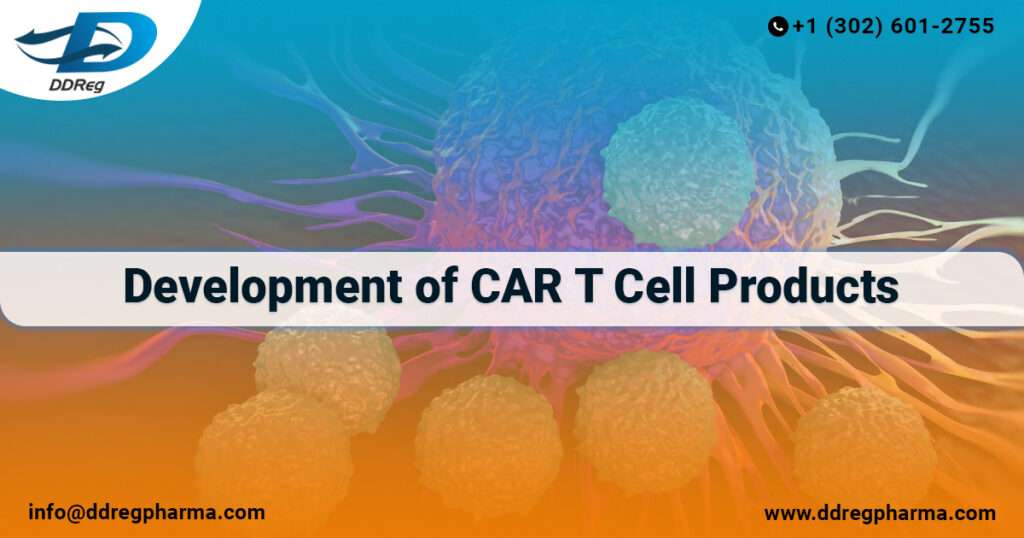Chimeric antigen receptor (CAR) T cell products refer to therapeutic human gene therapy products. They involve the genetic modification of T cell specificity which allows them to recognize a specific target antigen for therapeutic use. CAR T cells are associated with many challenges related to their development, manufacturing, testing, and even clinical evaluation. Therefore, it is critical to carefully design and appropriately test the CAR transgene & delivery vector to ensure its safety, specificity, and function.
Addressing changes in manufacturing processes & non-clinical evaluation
Manufacturing processes for CAR T cells involve multiple biological materials and relatively intricate procedures that are multi-step introducing potential variability among product lots. Hence, it is important to maintain tight control over manufacturing processes, ensure proper “in-process” and lot release testing. It is important to understand the impact of the changes on product quality particularly due to the fact that there are a number of changes in these processes during product development.
Moreover, the non-clinical evaluation of CAR T cells is imperative in order to establish how safe it is to administer the product in a clinical investigation. However, non-clinical testing for CAR T cells are also associated with many challenges pertaining to the biological complexity, variability, and even the lack of availability of animal models that would support in testing its safety and efficacy. Thus, in order to support the use of CAR T cells for a proposal clinical investigation, a case-specific non-clinical testing strategy is necessary. The strategy should include/incorporate in-vitro, in silico, and in-vivo testing (as/if appropriate) coupled with any relevant non-clinical and clinical data from “related” products.
Early phase clinical studies for CAR T cell products
A well-designed and detailed early-phase clinical study is pivotal in establishing the CAR T cell product’s safety. The study should focus on evaluating the adequacy of risk minimization measures, comprehend the dose-response relationship, identify any optimal doses based on different indications, demonstrate any early evidence of efficacy, and assess the feasibility of product manufacturing. When it comes to autologous CAR T cells, these early-phase studies can also provide insights to manufacturing timelines and whether bridging therapy may manage active disease while waiting for CAR T cell treatment. With respect to allogenic CAR T cells, an early-phase clinical study can provide information about “graft versus host diseases” or GVHD. Indeed, early-phase clinical studies can provide critical information that serves as a robust foundation to advance CAR T cells into later-phase clinical studies. This may accelerate the clinical development of these products.
US FDA: Considerations for the Development of CAR T Cell Products
CAR T cells fall under the US FDA’s regulatory framework for biologic products. The Agency recently issued a guidance document, “Considerations for the Development of CAR T Cell Products”, to provide specific recommendations to key stakeholders with respect to CMC, pharmacology, toxicology, and clinical study design for oncology indications. The guidance also includes recommendations that are specific to autologous or allogeneic CAR T cell products.
The guidance document covers general considerations for CAR T cell design and development with respect to CAR construct, vector, cellular starting material, and fresh/cryopreserved final products. Under its recommendations for CMC, it addresses vector manufacturing & testing, collection, handling, & testing of cellular starting material, CAR T cell manufacturing and testing (process control, analytical testing, product labeling), managing any manufacturing changes while assessing comparability during product life cycle (change management & comparability study design), and single-site or multisite CAR T cell manufacturing.
The Non-Clinical sections provides recommendations for non-clinical considerations for CAR construct, for cellular component of CAR T cells, in-vivo testing of CAR T cells, and CAR T cells with any additional modifications. The Clinical section covers recommendations for study population, treatment plan, clinical pharmacology, safety evaluation& monitoring, CAR T cell persistence and long term follow up, and allogeneic CAR T cells.
Conclusion
The development and application of CAR T cell products in human gene therapy demonstrates promise but are associated with challenges with respect to clinical evaluations, manufacturing complexities, and genetic modification. The US FDA’s guidance document aims to cover various aspects of CAR T cell product development to help advance their clinical development.
Reach out to DDReg for expert clinical regulatory services to support with the development of biological products. Read more from the experts here: The Advancements of Gene Editing Technology for Safe and Effective Gene Therapy Products.

